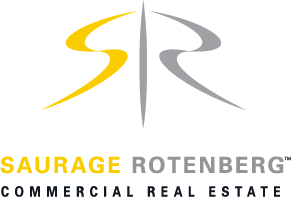Article submitted by Mike Stinson, CCIM, Sales and Leasing Agent for Saurage Rotenberg Commercial Real Estate
Timothy Duggan, Marshall Kizner for CIRE Magazine | September/October 2016
Landlords and property owners of commercial and industrial property often underestimate the importance of analyzing their property tax assessments for leased buildings. The rationale for skipping this review is simple. The property taxes are paid by tenants through a triple net lease, so the landlord puts the onus on the tenants to appeal if they believe the taxes are high.
On the surface, there doesn’t appear to be any benefit to the owner taking on the responsibility. However, this choice may have unintended legal and financial consequences for property owners.
Risky Business
Any Tenant Could File an Appeal. It is usually a win-win scenario for the landlord when a tenant pursues a property tax appeal. However, what if the wrong tenant decides to challenge the tax assessment for an entire shopping center or building by filing and litigating a real estate property tax appeal? More often than not, unless otherwise provided in the lease, the tenant who files the appeal is the party who controls the appeal.
Although tax appeals are usually filed by anchor tenants, sometimes a small tenant will decide to file. This could lead to an undesirable scenario where the party paying the smallest percentage of pro rata tax liability has the largest say in the future tax liability of the property – including what the anchor tenants will pay. Along these same lines, if the property was under-assessed when the appeal was filed, the good intentions of the tenant filing the appeal could lead to increased tax liability from subsequent actions by the taxing authority.
Vacancies. While most owners are optimistic their property will always be 100 percent occupied, vacancies do occur periodically. During this non-income producing period, property owners will be responsible for the pro rata assessment and tax payments on the vacant property.
Tenant Satisfaction. Tenants will look positively on their landlord if actions are taken to save them money. Tax savings will be passed through to the tenant, which will help develop and foster a good rapport between the parties. If there are contentious issues that arise during the life of the lease, the goodwill established from a tax appeal can be used to help facilitate resolution of those issues in favor of the owner.
Increased Revenue Streams. When it is time to renew a lease or negotiate with a new tenant, property taxes are an inevitable consideration. The lower the taxes, the easier it is for the landlord to increase rental rates or seek higher rates from new tenants in order to stay competitive in the market.
Reasons to Forgo Filing a Property Tax Appeal. When a property tax appeal is pursued, the party litigating the appeal is often required to obtain an appraisal report to support that the property is worth less money than what the taxing authority believes.
Under this scenario, the owner may not want a new appraisal. For example, the landlord could be in the middle of negotiating refinance terms or intending to use the property as collateral with a lender. If the lender learns of the appeal and opinion of value, it could negatively affect the loan-to-value analysis and affect the owner’s ability to receive financing.
Defining Responsibilities
The most direct way to deal with these issues is to make it clear in the lease who has the right to appeal property taxes and to control decisions in an appeal. When these issues are raised in courts, judges often consider several factors in balancing the rights of the parties.
The first factor is consideration of the terms and conditions of the lease. Tax appeal rights should be included within these clauses to ensure the landlord maintains control of the property. If the landlord does not want any tenant, or only a certain tenant to file an appeal, the lease should restrict participation by certain tenants.
Likewise, if the landlord wants sole control over appeals, the lease should specify this right. If the landlord is in favor of allowing a tenant or class of tenants to appeal, it should, at a minimum, retain the ability to make decisions concerning the strategy and consent to settlement.
Duly negotiated lease provisions are often given significant weight by the courts and could help the parties save time and money later on. In contrast, problems often occur when the lease is silent on these issues and the courts are left to interpret rights.
In short, thoughtful planning and strong lease terms by the property owner regarding tax liability review can help avoid disagreements and the unintended consequences to keep the landlord in control of the property and business goals.
Mike Stinson, a native of Monroe, Louisiana, is a graduate of Louisiana State University (LSU). A real estate licensee since 2004, Mike specializes in the sale and leasing of commercial real estate. A Designee member of the Certified Commercial Investment Member Institute (CCIM), Mike’s other professional memberships include Baton Rouge’s Commercial Investment Division (CID), theLSU Alumni Association, REALTOR Land Institute (RLI), and an affiliate member of the National Association of REALTORS® (NAR).
Saurage Rotenberg Commercial Real Estate is a member of the Baton Rouge Area Chamber of Commerce (BRAC); the West Baton Rouge Chamber of Commerce; the Baton Rouge Better Business Bureau; the Louisiana Commercial Data Base (LACDB); and the International Council of Shopping Centers (ICSC). Several agents, on an individual basis, are members of the Society of Industrial and Office Realtors® (SIOR), the Certified Commercial Investment Member Institute (CCIM); the National Association of REALTORS® (NAR); and the Greater Baton Rouge Association of REALTORS® Commercial Investment Division (CID).



